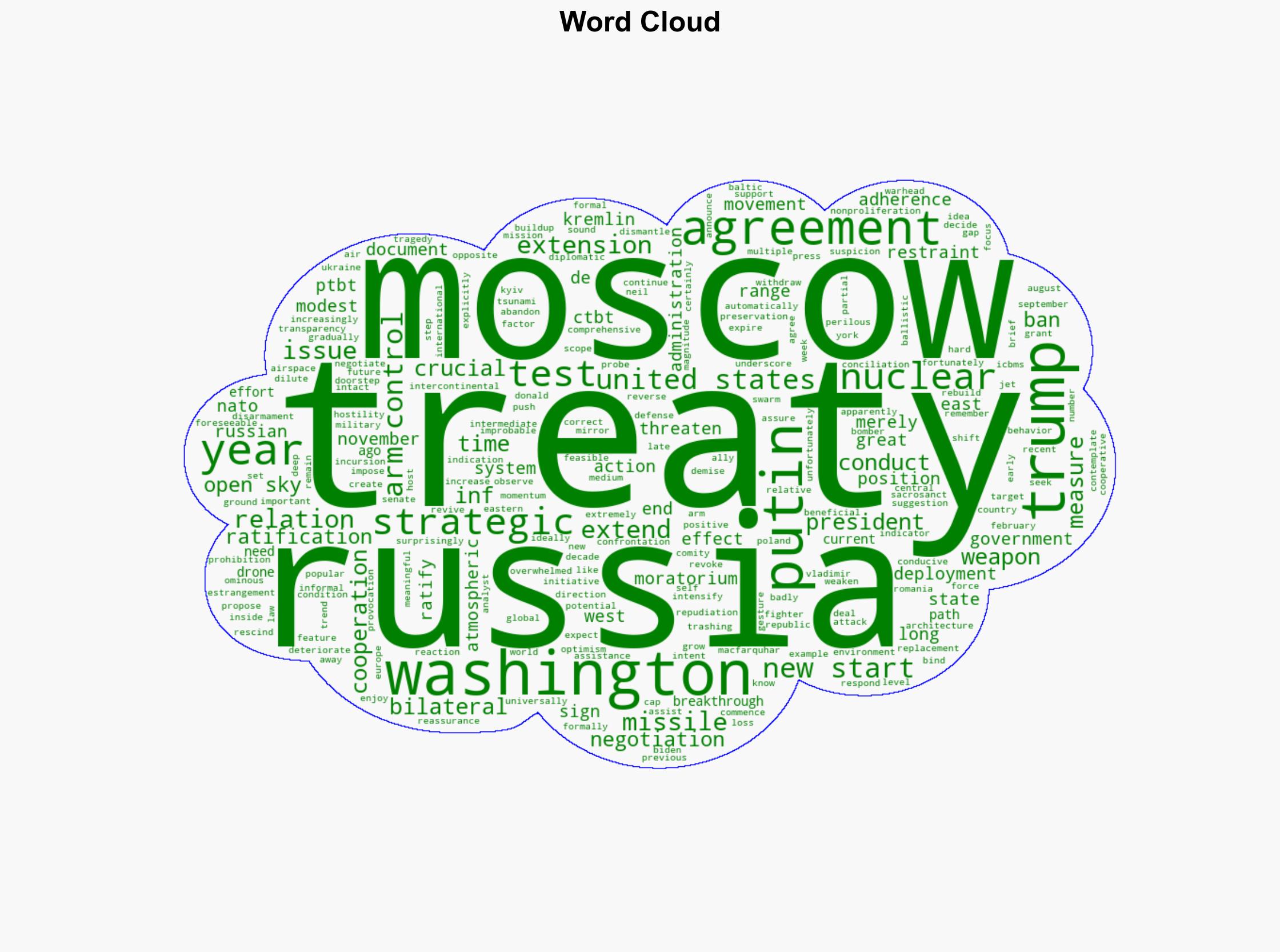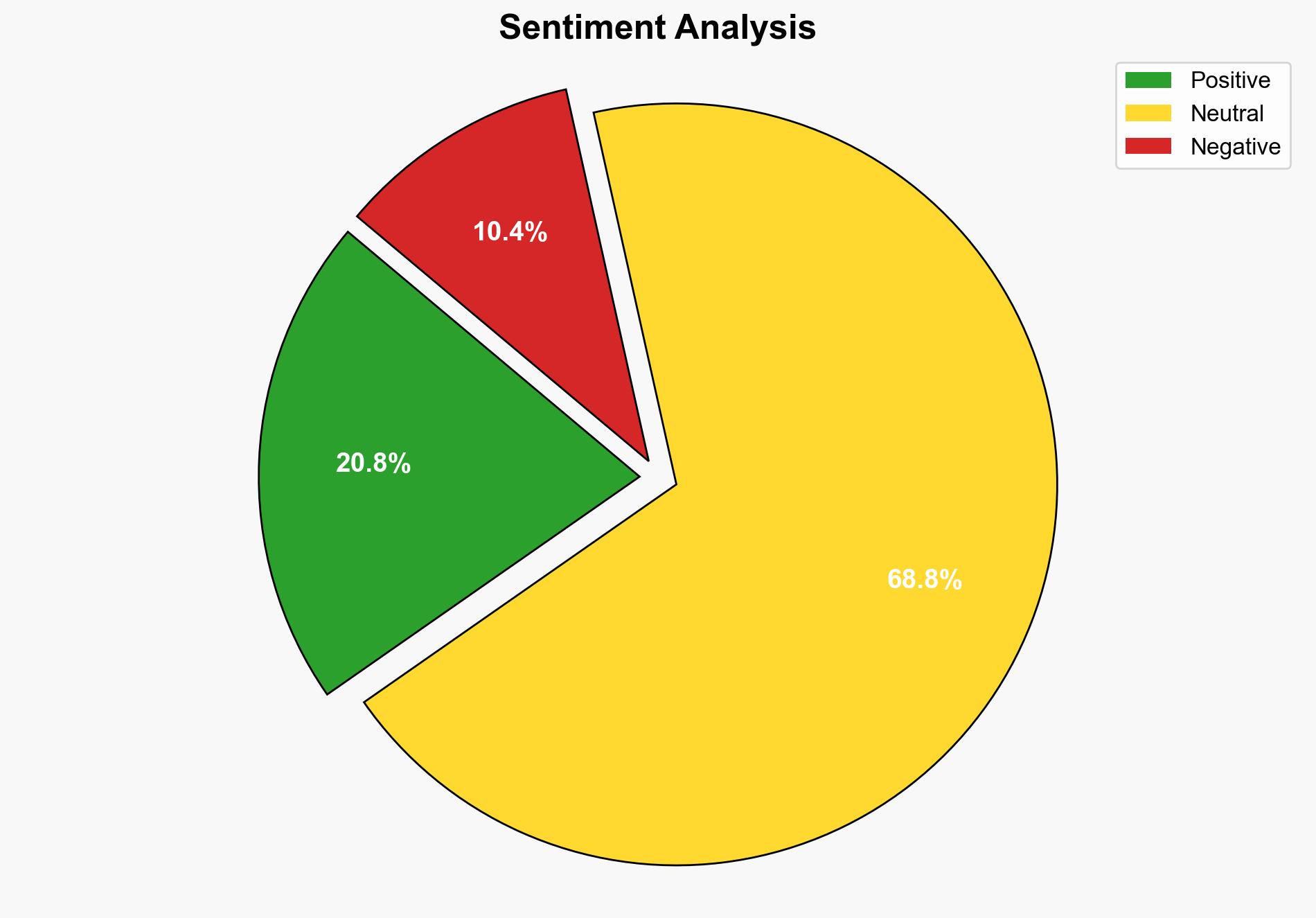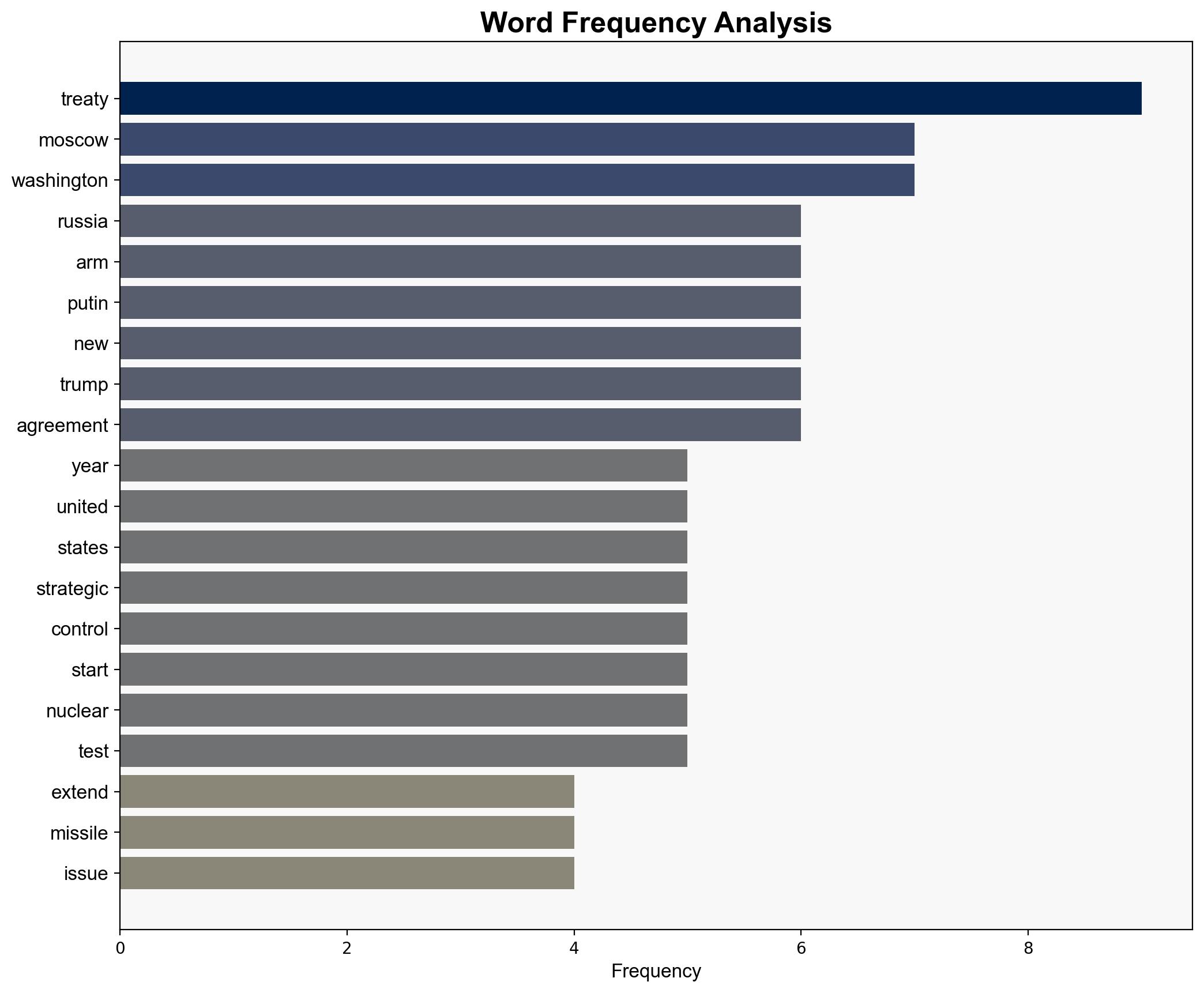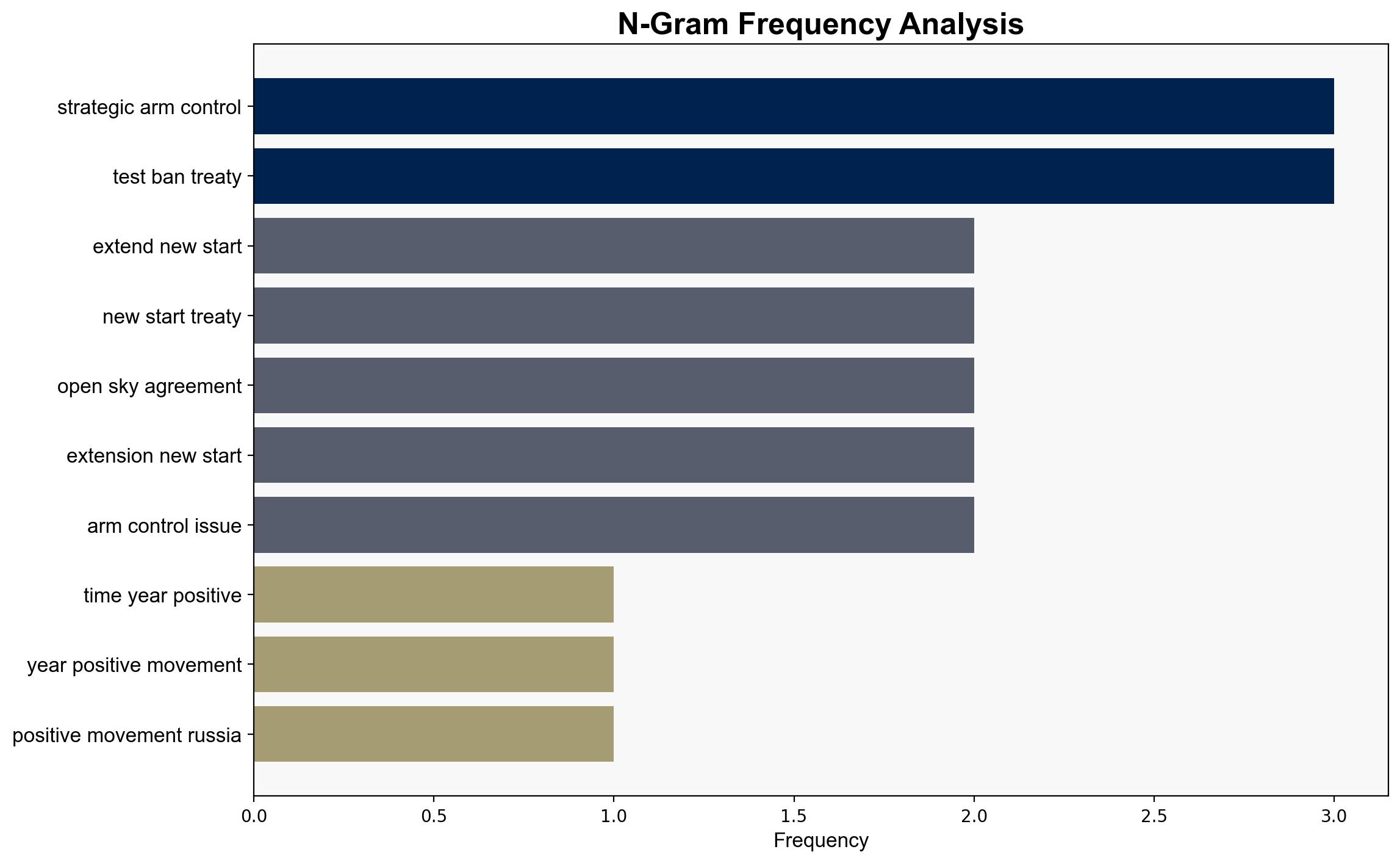Can Trump Revive the Strategic Arms Control System He Helped Wreck – Antiwar.com
Published on: 2025-10-13
Intelligence Report: Can Trump Revive the Strategic Arms Control System He Helped Wreck – Antiwar.com
1. BLUF (Bottom Line Up Front)
The strategic arms control system between the United States and Russia faces significant challenges, with a low confidence level in immediate revival efforts. The hypothesis that the current geopolitical climate will hinder meaningful negotiations is better supported. Recommended action includes diplomatic engagement with a focus on de-escalation and confidence-building measures.
2. Competing Hypotheses
1. **Hypothesis A**: The United States and Russia will successfully negotiate an extension of the New START treaty, leading to a revival of strategic arms control efforts. This is supported by Putin’s proposal and Trump’s initial positive reaction.
2. **Hypothesis B**: Geopolitical tensions and mutual provocations will prevent meaningful progress in strategic arms control, leading to further deterioration of the arms control architecture. This is supported by ongoing military activities and the dismantling of previous treaties.
Using ACH 2.0, Hypothesis B is more supported due to the consistent pattern of treaty withdrawals and military escalations, outweighing isolated diplomatic gestures.
3. Key Assumptions and Red Flags
– **Assumptions**: Hypothesis A assumes that diplomatic gestures will translate into actionable agreements despite current tensions. Hypothesis B assumes that existing provocations will continue to escalate.
– **Red Flags**: The assumption that initial positive reactions will lead to substantive negotiations lacks historical precedent given recent treaty withdrawals.
– **Blind Spots**: Potential backchannel negotiations or third-party mediation efforts are not considered in the current analysis.
4. Implications and Strategic Risks
– **Escalation Scenarios**: Continued military provocations could lead to miscalculations, increasing the risk of conflict.
– **Geopolitical Dimensions**: The deterioration of arms control agreements may embolden other nuclear-capable states to expand their arsenals.
– **Economic and Cyber Risks**: Increased tensions could lead to economic sanctions and cyber warfare, impacting global markets and infrastructure.
5. Recommendations and Outlook
- Engage in multilateral forums to facilitate dialogue and reduce tensions.
- Implement confidence-building measures, such as transparency in military exercises, to prevent miscalculations.
- Scenario Projections:
- **Best Case**: Successful treaty extension and renewed diplomatic engagement.
- **Worst Case**: Escalation into open conflict due to misinterpretations and provocations.
- **Most Likely**: Continued stalemate with sporadic diplomatic efforts overshadowed by military activities.
6. Key Individuals and Entities
– Vladimir Putin
– Donald Trump
– Joe Biden (in context of policy continuity or change)
7. Thematic Tags
national security threats, arms control, geopolitical tensions, US-Russia relations





